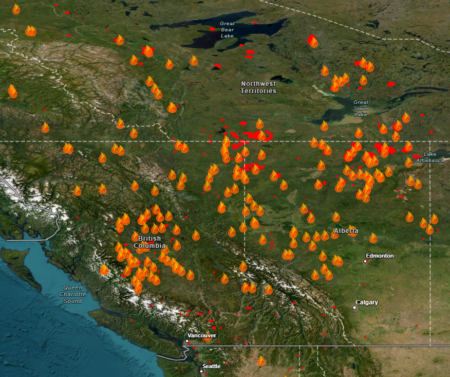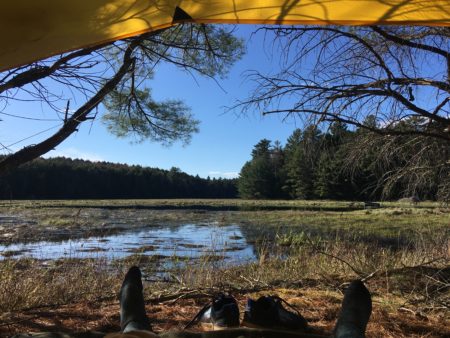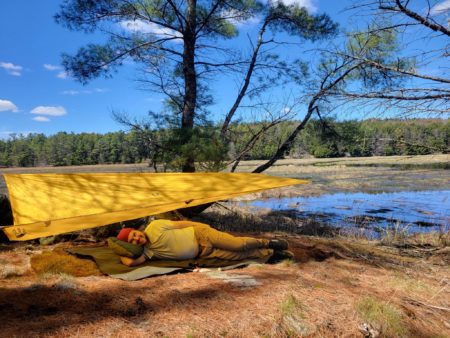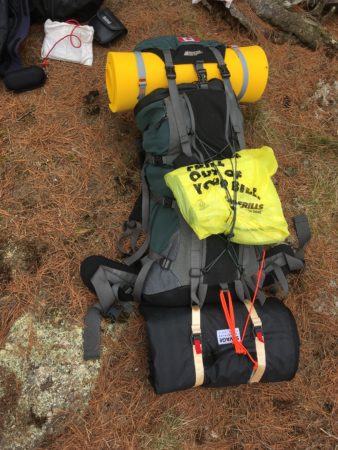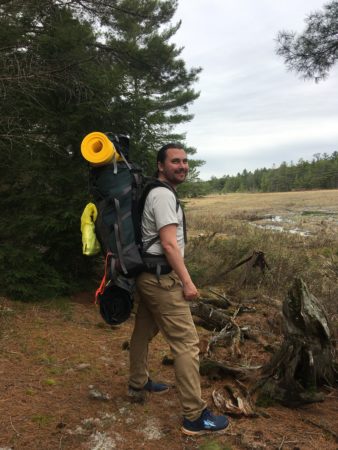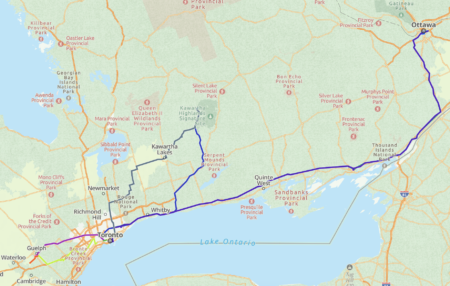Sasha and I woke early at our B&B in Yellowknife and after a simple breakfast began our drive south. Tragically, we were never invited to meet the proprietors’ 24-year-old parrot Cosmo (possibly “Gosmo”) McBeaky, which I heard when booking from Toronto and had been psyched to meet north of 60°.
In Yellowknife and during the NWT and northernmost Alberta parts of the trip, the air quality was at 11 in the Apple weather app, whereas I never saw worse than 7 in Toronto. We drove past Sasha and Mica’s former school in Edzo, and then down toward the route through High Level which we had chosen to avoid wildfires near the Liard highway.
For most of the drive, we swapped between our respective Spotify libraries (mine only in the minority of spots with cell coverage, because there is no space on my phone for downloads) and sang along to the many songs we both know. We also listened to Serkis’ reading of The Hobbit from the battle against Smaug in Esgaroth to the very cusp of the eucatastrophe in the Battle of Five armies before pausing in High Table to share a large Mediterranean pizza.
We added another 300 km to our earlier 700 and got to Grimshaw as a severe thunderstorm was starting. We opted not to camp due to the expected bad weather and checked into the last available room in a hotel full of fire-fighting teams and lost power ten minutes later when Sasha was in the pool and I was doing an intense 25 minutes on the elliptical machine (my first time since the U of T gyms closed for COVID). I feel like I’m fitter than I remember being then, but part of it was surely desire to move my legs after a bus and three flights followed by the three hour Oppenheimer screening we attended last night, plus today’s driving.
I saw more ravens in a day than I think I ever have, and we got a close look at twenty or so bison of all sizes standing around and atop the road. They have truly impressive bulk and presence, and seemed utterly unperturbed by us, though willing to slowly shift off the road while we watched them and took some photos.
We are monitoring wildfire locations and road closures, but presently planning to drive into BC via Jasper and to camp tomorrow night if we can find a good spot and decent weather. To leave space in the Mazda for Sasha’s move I packed as light as possible, omitting a fly for my tent and all my rainy weather clothes (indeed, I brought just three shirts, my two intact-ish pairs of cargo trousers, and fresh daily socks for a five day trip).
I am hugely grateful to my parents and especially my mother for making the trip possible by helping me secure an apartment as guarantors. The chance to spend one-on-one time with Sasha is a true blessing, and the trip will doubtless be a source of memories and stories between us for life.

